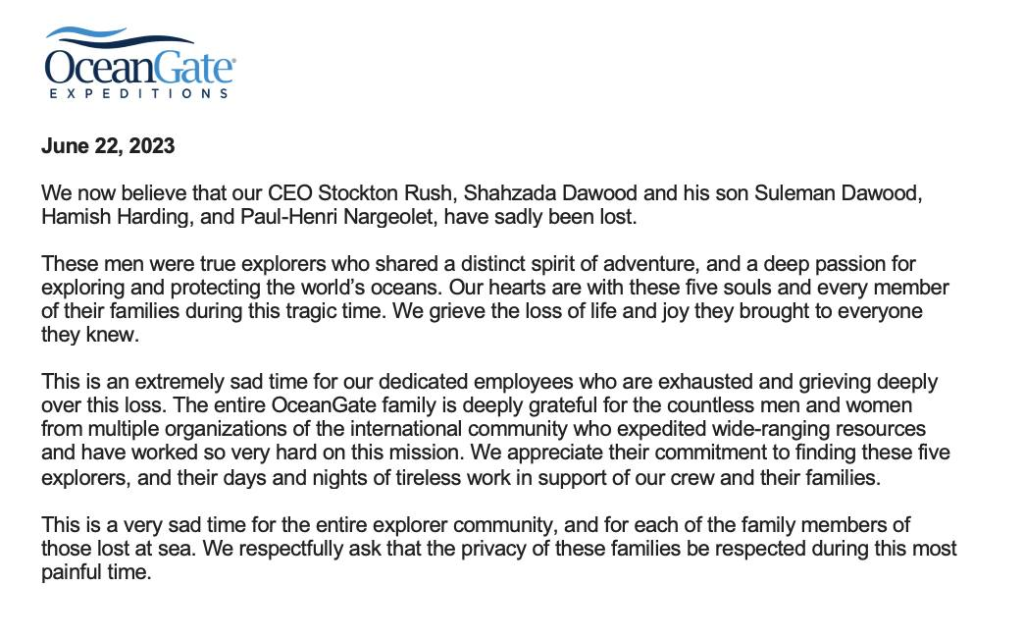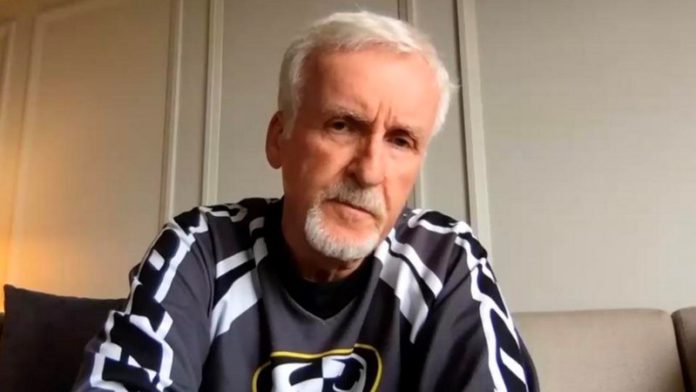Hollywood film director James Cameron, who helmed the 1997 movie Titanic, has told the BBC he felt the loss of the Titan submersible “in my bones”.
Cameron has completed 33 dives to the wreck of the Titanic.
He said he was on a ship on Sunday when the sub went missing, and did not hear about it until Monday.
When he learned that the sub had lost both its navigation and communication at the same time, he said he immediately suspected a disaster.
“I felt in my bones what had happened. For the sub’s electronics to fail and its communication system to fail, and its tracking transponder to fail simultaneously – sub’s gone.”

The director went on: “I immediately got on the phone to some of my contacts in the deep submersible community. Within about an hour I had the following facts. They were on descent. They were at 3500 metres, heading for the bottom at 3800 metres.
“Their comms were lost, and navigation was lost – and I said instantly, you can’t lose comms and navigation together without an extreme catastrophic event or high, highly energetic catastrophic event. And the first thing that popped to mind was an implosion.”

On Thursday, an official from the US Navy told the BBC’s partner CBS News that the navy had detected “an acoustic anomaly consistent with an implosion” shortly after the Titan lost contact with the surface.
The official said the information had been relayed to the US Coast Guard team which used it to narrow the radius of the search area.
Cameron told BBC News the past week had “felt like a prolonged and nightmarish charade where people are running around talking about banging noises and talking about oxygen and all this other stuff”.
“I knew that sub was sitting exactly underneath its last known depth and position. That’s exactly where they found it,” he continued.
He added that once a remotely controlled underwater vehicle was deployed on Thursday, searchers had “found it within hours, probably within minutes”.
Cameron also suggested that there was a “terrible irony” in the loss of Titan and its crew, likening it to the loss of the Titanic itself back in 1912.
“We now have another wreck that is based on unfortunately the same principles of not heeding warnings,” he said. “OceanGate were warned.”
He said the company had had people working internally who quit but he did not specify why.
He went on to say that some within the deep submergence community, not including himself directly, had written a letter to OceanGate saying they believed, in his words, “you are going on a path to catastrophe”.
Cameron is not the first to raise concerns about the tourism firm’s operations.
A letter sent to OceanGate by the Marine Technology Society (MTS) in March 2018 and obtained by the New York Times stated “the current ‘experimental’ approach adopted by OceanGate… could result in negative outcomes (from minor to catastrophic)”.
Separately, US court documents show a former employee of OceanGate warned of potential safety problems with the vessel as far back as 2018.
The documents show that David Lochridge, the company’s director of marine operations, raised concerns in an inspection report.
A spokesman for OceanGate declined to comment on the safety issues raised by Mr Lochridge and the MTS.

